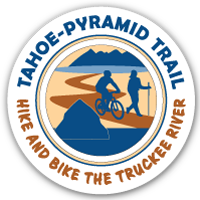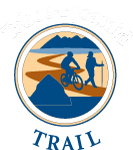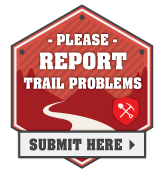Nutrition Advice for Hitting the Trail
As the weather improves, we want to get outside, exploring TPT to boost our mental and physical health. Before we head out the door, let’s review some nutrition basics to optimize our enjoyment of our adventures. After having taught nutrition for 27 years, I, Regina O’Shea-Hockett, am keenly aware that food choices and philosophies are personal, but hopefully I can make some general suggestions to help enhance your nutrient intake. There is no perfect food, or diet plan, but rather guidelines to help you select the foods you enjoy in the proportions that boost your health. While there are copious quantities of bars, gels, chews and beverages marketed to optimize your performance, and they may be convenient, they are certainly not necessary for the average outing, they are also often expensive and may contain ingredients that are not beneficial to you (for example, many contain soy, which can be an excellent source of protein, but is also a common allergen).
Too often when we think about nutrition we say, “I have to eat X,” or “I can’t eat Y,” while one food eaten or missed one time is unlikely to make a difference, the good and bad choices we make a difference over time. Think about the food you provide yourself daily as fuel not only for the next few hours, but for the hours, months, and years to come. Your pre-workout food choices could impact your ride/hike, while your post-workout choices could impact your recovery and your future outings. If you are prone to a sensitive stomach, your pre-workout meals should be lower in fiber and fat to minimize any gastrointestinal distress. So, what nutrients should we be concerned about?
The first nutrient I want to discuss, and the most important is water. Your body is 50-70% water (depending on gender, age, and fitness) and a deficiency of water can come on rather quickly. Ideally you want to be sure you are well hydrated before heading out, with the recommendation for 16 ounces of water 2 hours before and another 8 ounces of water 15 minutes before leaving. Water is usually the ideal beverage but if you are out for more than 90 minutes, or the temperature is over 90 degrees, you may wish to consider an electrolyte replacement drink. Another environmental factor that may dramatically increase your fluid requirements is the wind, be sure to consume more water during windy conditions, and post event. Be aware of common symptoms of dehydration including exhaustion, increased body temperature, increased thirst, confusion and fainting. If you think you are becoming dehydrated, rest and rehydrate immediately. After your hike be sure to drink extra water or chocolate milk as it also has protein (7 grams) and carbohydrates (30 grams).
When we exercise, we break down some muscle tissues and then rebuild them at rest. To rebuild muscle tissues, we need to consume an adequate amount of protein, or about 10-35% of your daily caloric intake from protein. This would be about 50-175 grams of protein, with your actual needs depending on your activity and size. As with all foods, selecting from a variety of options from plant proteins and lean animal proteins will give you a greater breadth of concomitant nutrients. Greek yogurt and berries for breakfast or a snack (18 grams), a handful of nuts on your ride (7 grams) and 3 ounces of salmon for dinner (21 grams) would nearly meet the recommendation for the day. Please note that simply eating more protein will not grow more muscles, muscular work is required first, then supported by dietary protein.
Carbohydrates have often been shunned by gurus, and while it may be beneficial for our health to limit simple sugar consumption, complex carbohydrates should be the foundation of our diet (45-65% of calories). Select a wide variety of whole grains, fruits and vegetables to optimize your diet. Carbohydrates provide the fuel that powers our activities, without enough carbohydrates we “hit the wall.” By consuming adequate carbohydrates before and during our ride we will have sufficient fuel to keep us going, consuming enough carbohydrates post activity will help ensure our next outing is just as successful.
~ Regina O’Shea-Hockett




